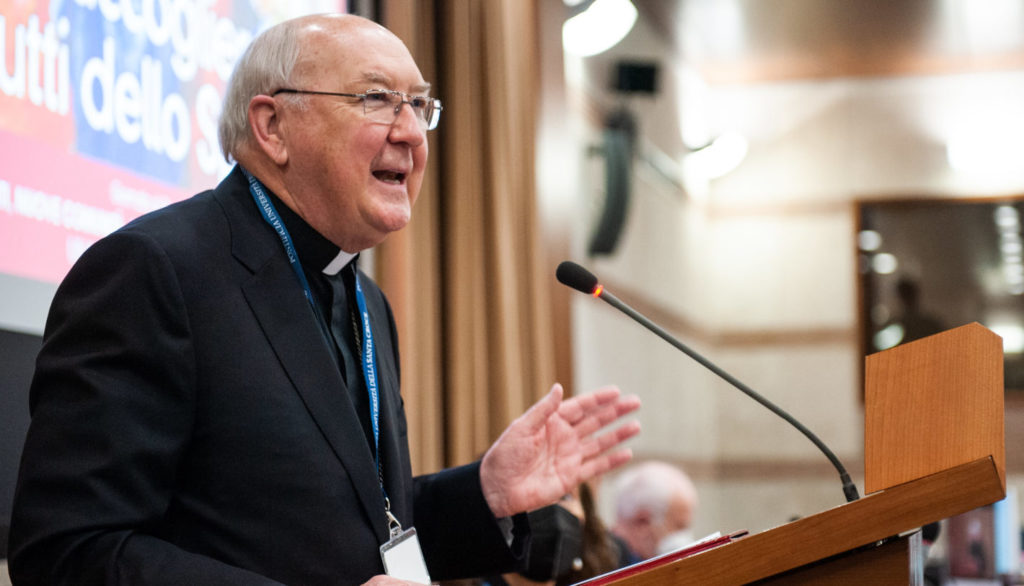Translation of the article into Italian
The annual meeting of moderators of associations of the faithful, ecclesial movements and new communities is being held at the Vatican to reflect on work as a place of sanctification and civil witness for every baptized person. For its part, the Pontifical University of the Holy Cross has hosted a Study Day also dedicated to the movementsfrom a theological perspective, reflecting on aspects of charism, baptism and mission.
For the occasion, Omnes interviewed the Prefect of the Dicastery for the Laity, Family and Life, Cardinal Kevin Farrell, who is responsible for movements and new communities.
Your Eminence, why are movements and new communities important in the Church?
-Movements in the Church, lay groups and new communities are so important in the world in which we live and in the secular culture that characterizes us because they bring an energy, a grace, a spirit through which they can more easily communicate the Word of God to our contemporaries. In essence, the movements were born to grasp and bring the message of the Gospel to all people, but not only with words, but through the witness of life at work and in daily life. This is the essence of the movements.
What perspectives should these groups have in light of the New Evangelization?
-It is essential for the whole Church to realize the importance of the movements for today's world. We live in a reality in which these groups practically carry the burden of evangelization. They are an integral part of the Church and have the task of fully living their mission, which is the mission of the Church itself.
What is the common denominator that makes these Movements a unified fruit of evangelization?
-These realities must collaborate and work together in the dioceses for preaching, for the New Evangelization... There is no movement that is better than another. It is always the Holy Spirit who has inspired the charism in the founders and moderators, but then the bulk of the witness comes from all the other adherents, because the founder was a concrete person who received the gift, but the movement is much bigger than the central organization.









